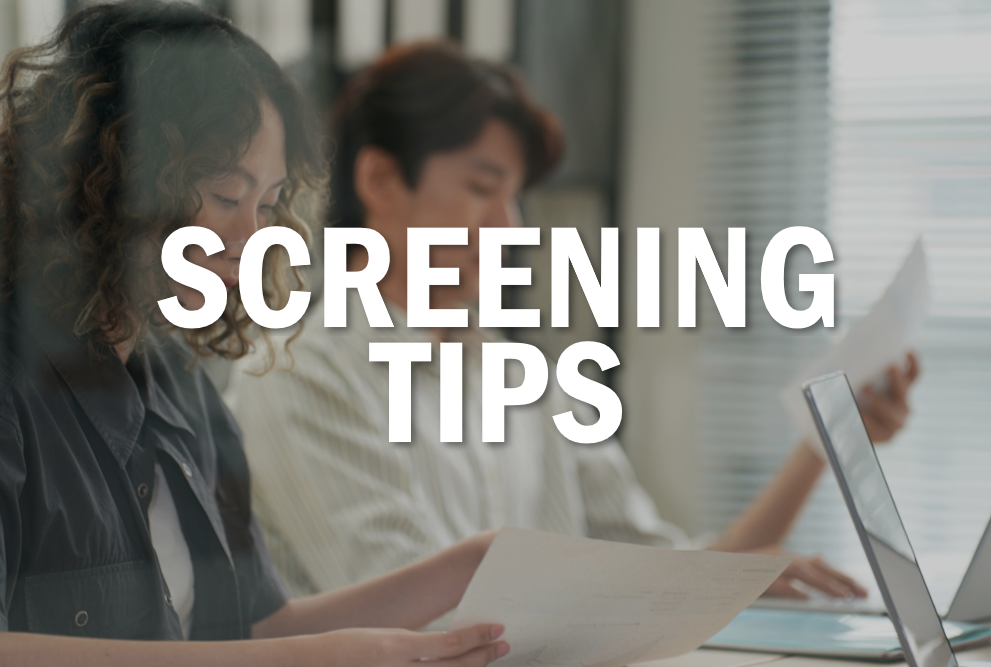
Screening Interviews: How to Save Time While Getting Better Candidates
Whether you’re a hiring manager, recruiter, or HR generalist who’s been tasked with making some new hires, chances are you’ve got a time problem: How do you reduce your time to hire when you’re dealing with a high volume of applicants, looming deadlines, and fewer staff members with the time to help?
For many organizations recruiting for junior and intermediate roles, online job postings mean an abundance of applicants who click apply even when they’re only minimally qualified. AI tools can help filter some candidates, but keywords and algorithms can’t always find the ideal people you’re looking for.
That’s where a strong pre-screening strategy makes a big difference. Done properly, pre-screening—brief conversations with promising applicants—helps you build a shortlist of strong candidates and avoid wasting time on those who aren’t a great fit.
Make a Plan
Planning is often overlooked in the hiring process, but setting clear expectations early creates a more efficient recruitment cycle.
Consider:
- When to stop accepting applications
- How many applications is sufficient
- The date interviews will begin
- How many candidates to screen and fully interview
- Who will be involved
- The target hiring date
Know Who You’re Looking For
Skills and experience aren’t enough. Think about:
- Do you need an entrepreneurial self-starter or a steady long-term team player?
- Is the role stable, or could the right person make it more dynamic?
A clear vision of the ideal candidate helps you screen more effectively.
Create a Structure: 15 Minutes + Notes
Screening interviews work best when standardized.
Effective structure:
- 15-minute phone or video interviews
- Three interviews per hour with a 15-minute break
- Take notes during each call
- Assign a rank immediately after each interview
- Use consistent but natural-sounding questions
A focused 15-minute conversation can reveal a great deal about fit and suitability.
First Question: “Do you remember why you applied to this job?”
With one-click applications, many candidates haven’t read the job posting. This question reveals:
- Whether they prepared
- Their communication skills
- Their level of interest
- Potential cultural or role fit
Second Question: “What do you know about our company?”
This identifies who researched your organization. Candidates don’t need deep knowledge, but those who say “I was looking at your website last night…” usually stand out as stronger prospects.
“Do you have any questions for me?”
This final question often reveals motivation and thoughtfulness.
Common strong questions:
- “What does a typical day look like?”
- “I’ve heard you have a great corporate culture—can you tell me more?”
Thoughtful questions indicate higher engagement and seriousness.
Your Shortlist Just Took Care of Itself
Though pre-screening takes a bit of time, it saves far more by producing a well-screened shortlist, reducing wasted interview hours, and lowering the chance of needing to repost the job.